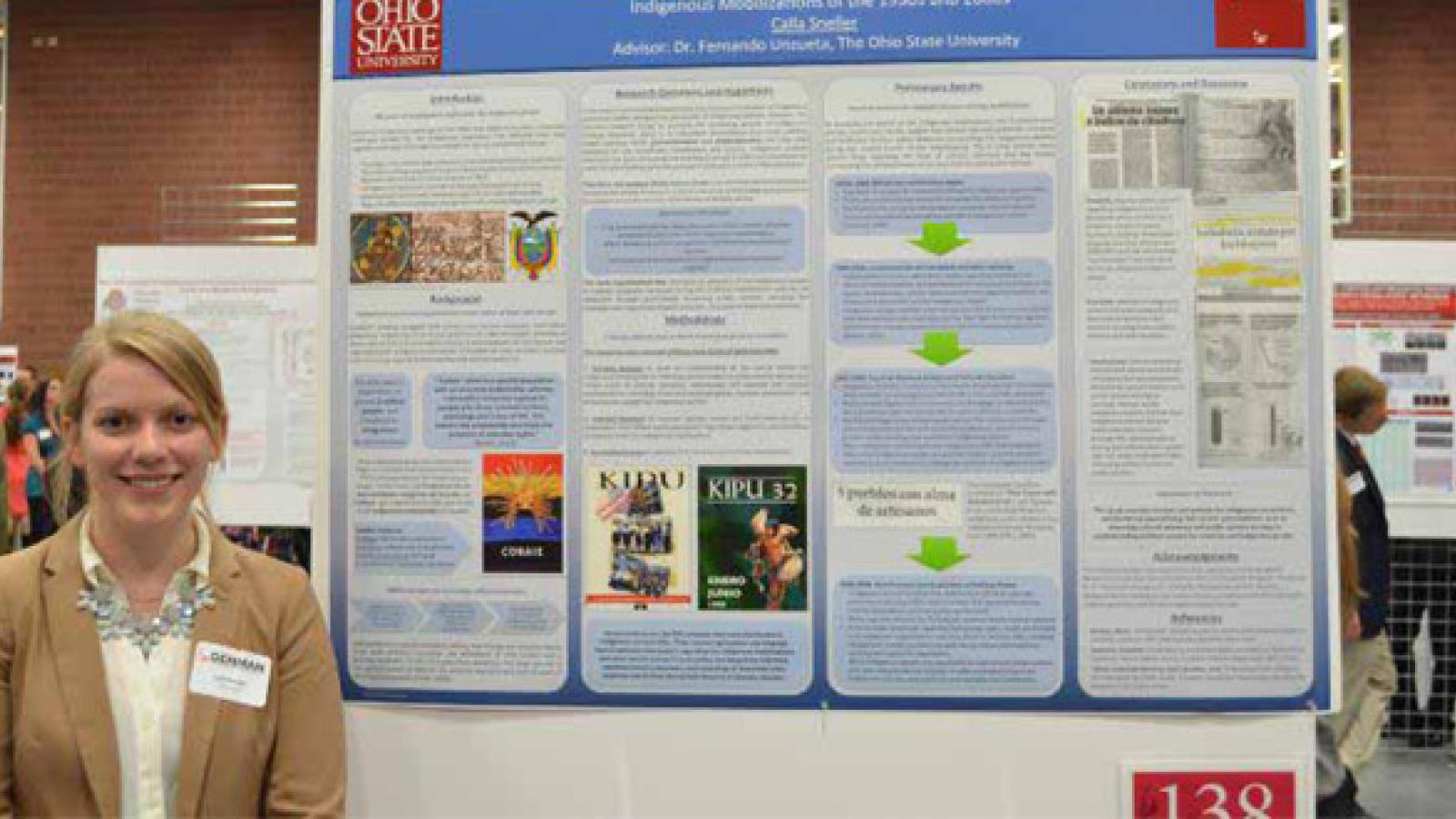Cultural Relevance and Political Power: The Importance of Public Opinion in the Ecuadorian Indigenous Mobilizations of the 1990s and 2000s
Presenter: Calla Sneller
Advisor: Prof. Fernando Unzueta
After 500 years of subjugation, indigenous mobilizations in Ecuador in the 1990s and 2000s profoundly changed the lives of indigenous people nationwide. Ranging from the creation of effective social profiles and successful community organizing, these developments created a change in public consciousness that led to greater social and political inclusion of indigenous populations. A key area of questioning concerns how the subsequent elections of indigenous politicians swiftly changed the perception of indigenous identity. However, the previous research failed to examine the preceding growth of indigenous cultural relevance, which is an important precondition that made political power feasible. The purpose of this study is to demonstrate the relationship between the steady increase in cultural relevance of the indigenous population in Ecuadorian society and the achievement of political power. The methods include content analysis to build an understanding of key events during the indigenous movements and archival research to uncover opinion pieces in newspapers that reflect public perception regarding indigenous culture during these times. By examining various newspapers, I will collect qualitative evidence that reflects the context leading up to political success. In order to further refine my analysis, I will use additional secondary sources to examine how cultural manifestations, including music and artisanal goods, became mainstream and also demonstrate the increasing support for indigenous culture. Current progress in my research shows a deficit in cultural understanding before the mobilizations in the 1990s and a consistent increase in positive public opinion leading up to the acquisition of political power in 2004. Additionally, in the early 2000s, opinion pieces illustrated lowered feelings of racism and increased respect for the abilities of indigenous people. Therefore, this study gives context and analysis for indigenous movements worldwide through exemplifying that certain preconditions, such as elevating cultural relevance, allow for political success for indigenous groups.

